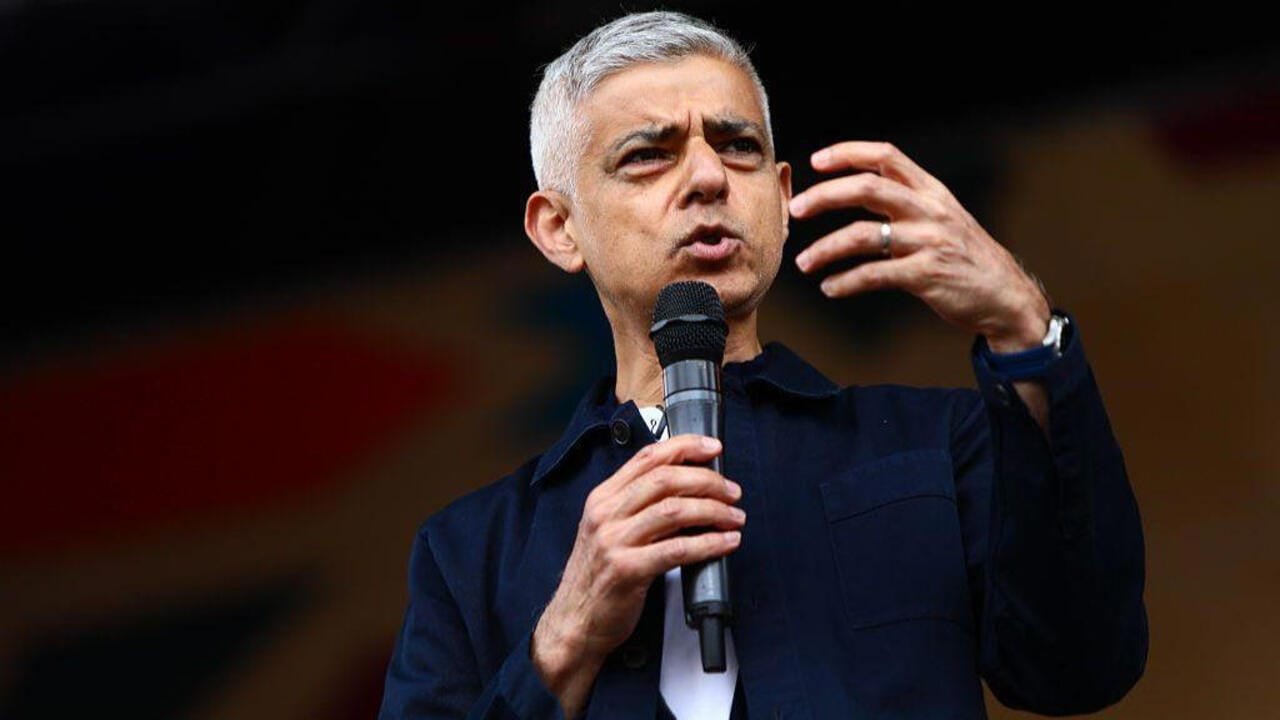Trump’s UK Visit Sparks Controversy Over Sadiq Khan’s Banquet Exclusion 🔔
Donald Trump’s recent state visit to the United Kingdom stirred a political firestorm when he claimed he personally blocked London Mayor Sadiq Khan from attending a state banquet at Windsor Castle. This move intensified the long-standing feud between the two, raising questions about diplomatic protocol and the intersection of personal politics with international relations. Despite the grandeur of the visit, which highlighted the USA-UK “special relationship,” the controversy over Khan’s exclusion dominated headlines [bbc, wionews].
What Happened During the Visit 📜
While returning to Washington on Air Force One, Trump told reporters he insisted Sadiq Khan be excluded from the state banquet hosted by King Charles at Windsor Castle. “I didn’t want him there,” Trump stated, calling Khan “one of the worst mayors in the world” and criticizing his handling of crime and immigration. The remarks, widely covered by UK and international media, contrasted with reports from Khan’s team, who told the BBC that the mayor neither sought nor expected an invitation. The visit itself, a rare second state visit for a non-royal, included formal engagements with King Charles and Prime Minister Keir Starmer, emphasizing technology and investment ties [wionews, thelondoneconomic].
The Feud Fueling the Drama 🔥
The clash between Trump and Khan dates back to 2015, when Khan criticized Trump’s proposed Muslim travel ban. Since then, tensions have escalated, with Trump labeling Khan a “stone-cold loser” and Khan accusing Trump of promoting far-right politics. This history framed the banquet exclusion as more than a protocol issue—it became a symbol of their ideological divide over immigration, crime, and urban governance. Khan’s team countered Trump’s claims, highlighting London’s global appeal and lower homicide rates compared to many US cities [standard, joe.co.uk].
Diplomatic Protocol and Precedent 📚
State banquets, hosted by the monarch and UK government, prioritize diplomatic and institutional guests over municipal leaders unless their presence serves a specific purpose. Trump’s claim of excluding Khan introduced a personal angle to a typically symbolic event, though Khan’s team clarified he was never in contention for an invite. While foreign leaders can influence guest lists indirectly, such public declarations are rare and risk turning ceremonial moments into political flashpoints [dxbnewsnetwork, m10news].
Political Strategy Behind the Clash ⚖️
For Trump, the narrative of excluding Khan aligns with his broader rhetoric against urban progressive leaders, linking London’s challenges to his critiques of US cities. For Khan, the dispute offers a chance to contrast London’s open, dynamic image with Trump’s divisive approach, resonating with Labour’s messaging under Starmer. Both sides gain media traction from the feud, though it risks overshadowing the visit’s focus on business and diplomatic achievements [lbc, nationalworld].
A 2019 Parallel: The Trump Baby Blimp 🎈
During Trump’s 2019 UK visit, Khan’s office approved a “Trump baby” blimp protest, which drew global attention and underscored the mayor’s ability to influence a visit’s optics without direct control over royal events. That episode, like the current controversy, highlighted how city-level actions can amplify ideological battles, turning diplomatic visits into platforms for political expression [veritas.enc.edu].
Impact on UK-US Relations 🌍
Despite the controversy, the visit featured warm exchanges between Trump and King Charles, alongside announcements of a £150bn tech deal and strengthened cooperation in AI and economy. However, the focus on Khan’s exclusion illustrates how personal rivalries can dominate narratives, potentially overshadowing policy wins and narrowing public focus to spectacle over substance [cbsnews, skynews].
Comparable Tensions in Context ⚡
Trump’s rhetoric likening Khan to US mayors he criticizes reflects a broader transatlantic narrative of “failing” urban centers. These portrayals often simplify complex crime and migration data but resonate in polarized media. Such clashes can influence diplomatic atmospherics, as seen in this controversy becoming a defining talking point of the visit [gbnews, msn.com].
Key Takeaways ✅
Trump’s public claim of barring Khan from the Windsor Castle banquet turned a ceremonial detail into a global headline, amplifying their long-standing feud. Whether Khan was ever considered for an invitation, the narrative underscored how personal politics can overshadow diplomatic goals, shaping perceptions of the UK-US “special relationship” in an era of polarized discourse.
FAQs ❓
What did Trump say about Khan and the banquet? Trump told reporters on Air Force One he “didn’t want” Khan at the Windsor Castle state banquet and requested his exclusion.
Did Khan seek an invitation? No, Khan’s team confirmed he neither sought nor expected an invite, per BBC reports.
Why does the Trump-Khan feud matter for diplomacy? It shifts focus from policy to personal conflict, complicating the narrative around UK-US relations.
Are mayors typically invited to state banquets? Not automatically—guest lists prioritize diplomatic and institutional figures based on the event’s purpose.
Is this similar to past Trump-Khan clashes? Yes, the 2019 “Trump baby” blimp protest during Trump’s visit showed how city actions can shape diplomatic optics.
